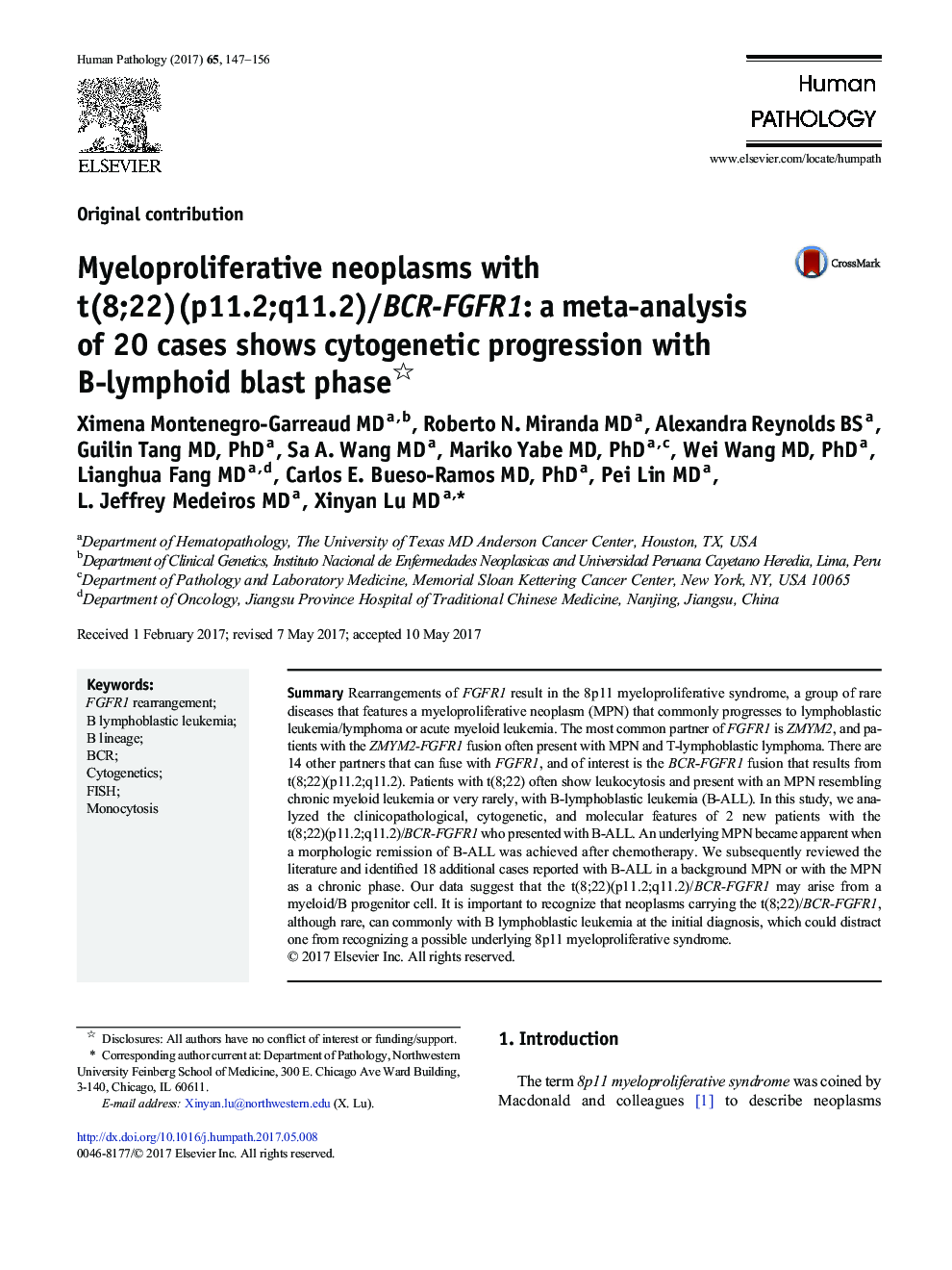| کد مقاله | کد نشریه | سال انتشار | مقاله انگلیسی | نسخه تمام متن |
|---|---|---|---|---|
| 5716326 | 1606645 | 2017 | 10 صفحه PDF | دانلود رایگان |

- Patients with t(8;22)(p11.2;q11.2)/BCR-FGFR1 can present with B-ALL.
- t(8;22)(p11.2;q11.2)/BCR-FGFR1 may arise in a myeloid/B progenitor cell.
- Cytogenetic progression is associated with B-lymphoid blast phase in such patients.
- MPN became apparent when a morphologic remission of B-ALL was achieved after chemotherapy.
SummaryRearrangements of FGFR1 result in the 8p11 myeloproliferative syndrome, a group of rare diseases that features a myeloproliferative neoplasm (MPN) that commonly progresses to lymphoblastic leukemia/lymphoma or acute myeloid leukemia. The most common partner of FGFR1 is ZMYM2, and patients with the ZMYM2-FGFR1 fusion often present with MPN and T-lymphoblastic lymphoma. There are 14 other partners that can fuse with FGFR1, and of interest is the BCR-FGFR1 fusion that results from t(8;22)(p11.2;q11.2). Patients with t(8;22) often show leukocytosis and present with an MPN resembling chronic myeloid leukemia or very rarely, with B-lymphoblastic leukemia (B-ALL). In this study, we analyzed the clinicopathological, cytogenetic, and molecular features of 2 new patients with the t(8;22)(p11.2;q11.2)/BCR-FGFR1 who presented with B-ALL. An underlying MPN became apparent when a morphologic remission of B-ALL was achieved after chemotherapy. We subsequently reviewed the literature and identified 18 additional cases reported with B-ALL in a background MPN or with the MPN as a chronic phase. Our data suggest that the t(8;22)(p11.2;q11.2)/BCR-FGFR1 may arise from a myeloid/B progenitor cell. It is important to recognize that neoplasms carrying the t(8;22)/BCR-FGFR1, although rare, can commonly with B lymphoblastic leukemia at the initial diagnosis, which could distract one from recognizing a possible underlying 8p11 myeloproliferative syndrome.
Journal: Human Pathology - Volume 65, July 2017, Pages 147-156